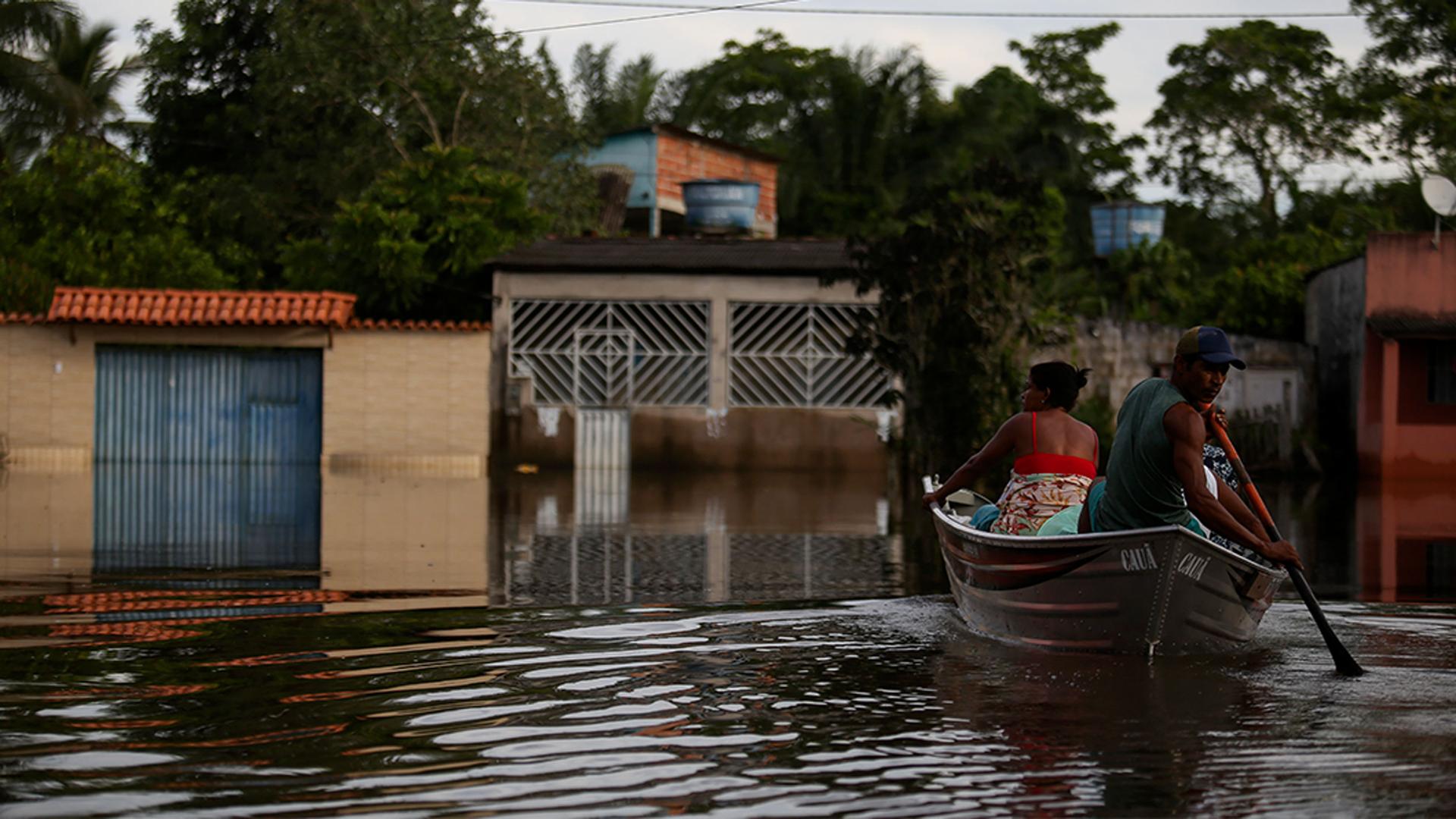‘It’s a gigantic tragedy’: Flooding in Brazil’s Bahia state displaces tens of thousands
Roads out, cities underwater, rescue operations underway — these are the images that have poured across news feeds over the past week from the Brazilian state of Bahia.
“We’re in the hands of God, right now,” said a man off-camera in one video shared over social media as a rising river poured onto the bridge where he was standing.
“I don’t remember anything of this magnitude in Bahia’s recent history.”
“It’s a gigantic tragedy,” Bahia state Gov. Rui Costa told reporters after surveying the damage last Sunday. “I don’t remember anything of this magnitude in Bahia’s recent history for the quantity of cities and homes affected. It is really terrifying.”
Related: Drought, frost takes a massive toll on coffee crops in Brazil
The floods have impacted more than 629,000 people, placing 132 municipalities across the state under a state of emergency.
The situation has been made worse by the rupture of at least two dams that sent water flooding into already choked rivers and neighborhoods.
State officials say another 10 dams are at risk of rupturing if the rains continue.
Related: Brazil’s COVID vaccination campaign picks up thanks to a 1980s public health mascot
“This is the reality of the dams in Brazil,” said Gabrielle Sodré, a Bahia resident and a member of the Movement of People Affected by Dams.
Sodré explains that only a small number of the country’s 24,000 dams are inspected and monitored, in part because they are on private property.
“These dams without inspections end up breaking.”
“So, when you have a volume of rain that is well above normal, these dams — without inspections — end up breaking,” she said.
According to the latest figures, nearly 54,000 people across the state were forced to leave their homes. Many people lost everything, but some neighbors have banded together and community groups are responding.
“Hi everyone, we are at the headquarters putting together bags of clothes to bring to Uruçuca,” said a young woman in a video shared by the Community Alliance, a neighborhood group in the Serra Grande region that was hit hard by the rains.
Behind the woman, a handful of volunteers fill black plastic bags with donations of clothes. Dozens of bags are stacked shoulder-high along the wall beside them.
Related: Electricity rates have skyrocketed in Brazil. The govt says the water crisis is to blame.
“I’m 66, and I never saw a flood like this,” said Joselita Machado Lima, a longtime community leader in the neighborhood of Bairro Novo, and a member of the Community Alliance. “There is so much need. Yesterday, when we were delivering donations, we saw that many homes are without furniture because the water rose really high.”
Machado Lima says she and many others have been working around the clock over the last week to provide support for those who have lost everything by delivering beds, clothes and food.
“The president is on vacation, while the state is in a calamity, so social organizations are responding and organizing however they can.”
“The president is on vacation, while the state is in a calamity, so social organizations are responding and organizing however they can,” Sodré said.
Brazilians took to social media this week to attack President Jair Bolsonaro for ignoring the tragedy in Bahia and continuing his end-of-the-year vacation at the beach in the southern state of Santa Catarina. Bolsonaro posted a video on his Facebook page showing himself greeting crowds of beachgoers from the back of a jet ski.
In another viral video, a reporter asked if the president will be on vacation into the new year.
“I hope I don’t have to go back early,” Bolsonaro said.
Climate Change
Scientists blame the weather pattern La Niña for the intense rains that have hit the state over the last month as well as recent droughts around the country. They also say global warming will likely make future episodes like this one even worse.
“With climate change, there is a tendency for these types of severe rains to happen ever more often,” said Pedro Roberto Jacobi, who is a professor at the University of São Paulo’s Energy and Environment Institute. “We have to look at the relationship between La Niña, extreme weather and global warming.”
Related: Evangelicals in Brazil ‘have taken power’ with latest Supreme Court justice appointee
The sun has shone over the last day or so, giving people a chance to start to pick up the pieces of their lives.
“People are returning to their homes. But we don’t have any idea of what the needs will be in the future,” Machado Lima of the Community Alliance said. “We have held emergency actions to collect clothes, beds and food for those in need because the water took everything some people had. Some people don’t even have a way to cook, because they lost their stoves and propane tanks. There is still so much need.”
Brazil’s National Meteorological Institute says more rains are expected in the coming weeks.
Our coverage reaches millions each week, but only a small fraction of listeners contribute to sustain our program. We still need 224 more people to donate $100 or $10/monthly to unlock our $67,000 match. Will you help us get there today?
